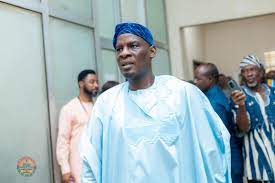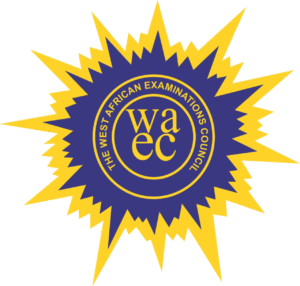Education Ministry Reignites Research Group to Propel Policy Through Data

The Ministry of Education has officially inaugurated the reconstituted Education Sector Research Group (ESRG), marking a significant step toward enhancing evidence-based policy formulation across Ghana’s education sector. This relaunch forms a key component of the Ghana Accountability for Learning Outcomes Project Additional Financing (GALOP AF2), an initiative designed to boost research capacity and deepen the use of data to improve learning outcomes nationwide.
The inauguration event brought together a diverse mix of stakeholders, including academics, civil society representatives, development partners, and government officials, all united by a common goal: to advance education reforms rooted in sound research and empirical evidence.
Speaking at the event, the Minister of Education underscored the transformative power of research in shaping effective policies. “This inauguration represents a pivotal moment in how we approach education reform,” he said. “Data and evidence are more than just numbers—they are tools for making strategic decisions that lead to fairer resource distribution and better learning experiences for our children.”
Revitalizing Research for Greater Impact and Inclusivity
The revamped ESRG emerges as a vital pillar under GALOP AF2’s wider agenda to expand proven education interventions and strengthen the ecosystem supporting them. The new group features an expanded and more inclusive membership, welcoming experts from universities, think tanks, civil society organizations, and international development agencies.
The Minister explained that while the previous ESRG contributed valuable insights, it lacked the breadth and agility necessary to fully meet the sector’s evolving needs. “This revitalized group is designed to bring fresh energy and a wider diversity of expertise to the table,” he said. “It will ensure that education policies are informed by a comprehensive range of perspectives, fostering more responsive and impactful reforms.”
Establishing GEEDLab: Ghana’s National Education Data Hub
A cornerstone of GALOP AF2 and the revitalized ESRG’s work is the creation of the Ghana Education Evidence and Data Laboratory (GEEDLab). This innovative research hub will serve as a national center for education data science, analysis, and collaboration.
The ESRG will provide strategic oversight of GEEDLab’s activities, ensuring that the lab’s outputs directly inform policy priorities in real time. “With GEEDLab, we are breaking down silos between researchers, data experts, and policymakers,” the Minister noted. “This collaborative ecosystem will generate actionable knowledge that drives swift, evidence-informed decisions.”
Bridging Research and Policy for Timely Solutions
One of the core objectives of the rejuvenated ESRG is to reduce the time lag between research findings and policy implementation. The group is expected to tackle pressing challenges such as learning loss exacerbated by the pandemic, disparities in digital access, and the need for resilient education systems during emergencies.
Key responsibilities assigned to the ESRG include:
-
Developing and finalizing a comprehensive national Research and Learning Agenda (RLA) that guides sector priorities
-
Conducting and synthesizing high-impact research focused on education quality and equity
-
Monitoring and promoting the use of evidence in policy and program decision-making
The Minister emphasized the importance of active collaboration and transparency within the ESRG. “We need members to be relentless in sharing data, questioning assumptions, and working across disciplines,” he stated. “Our goal extends beyond knowledge generation—we want swift, intelligent application of research to improve educational outcomes.”
Promoting Accountability and Open Data
To enhance transparency and accountability, the Minister urged the ESRG to commit to quarterly reviews that are data-driven and publicly accessible. He also stressed the importance of publishing research methodologies, data sets, and results openly, making the group a model for credible and collaborative research governance.
“By fostering open dialogue and accountability, this group will become a vital reference point for education policy in Ghana,” he said. “The decisions we make today will shape the futures of millions of Ghanaian children.”
Acknowledging Development Partners’ Support
The Ministry acknowledged the critical role played by development partners in the establishment and strengthening of the ESRG. The SCALE Funders, Global Partnership for Education (GPE), and the World Bank received special commendation for their financial and technical support.
“Our partners have demonstrated strong confidence in Ghana’s capacity to lead innovative education reforms,” the Minister said. “Their investment is a testament to our shared commitment to transforming education.”
With the relaunch of the ESRG and the launch of GEEDLab, the Ministry of Education is laying the groundwork for a future where data and research drive equitable, effective policies. This marks a new era of collaboration and accountability in Ghana’s education sector, ultimately improving learning outcomes for all students.





